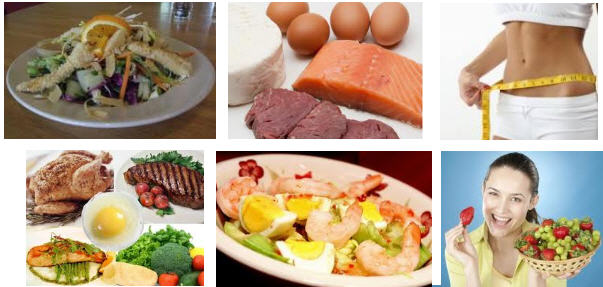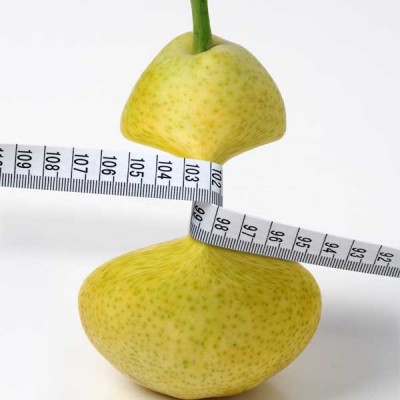There are many people who just cannot lose fat on a high carbohydrate diet. Even though they eat “good” carbs and workout hard, they cannot seem to get to the body fat level they desire. This is common in many people, but there is a solution: TIMING YOUR CARBOHYDRATE INTAKE!
Timing your carbohydrate intake works basically like a Keto-diet. When you reduce carbohydrates to ZERO, and keep it that way for at least 2 days, your body will switch from burning carbohydrates to burning fat. Ultimately your body will begin converting fat into ketones, and using the ketones as its primary fuel source. This process is called ketosis, and so aptly named a Keto-diet.
Keto diets are protein sparing, which means your body will keep its muscle, which is exactly what you want. A Keto diet works extremely well for shedding body fat while keeping hard-earned muscle. There is, however, a downside to a Keto diet. In order to achieve and stay in ketosis, you have to be carb-free for a minimum of 2 days.
A true Keto diet requires you to go without any carbohydrates for 5 or 6 days and then allows a 1 or 2 day “carb-up”. When your “carb-up” is over, the cycle is repeated. Sounds simple, right? Try it and see. It’s not that easy. The idea of a 1 or 2 day “carb-up” sounds appealing but it cannot be full of junk food and high fat foods.
Carb-ups must be low fat and 90% healthy carbohydrates like sweet potatoes and oatmeal. If you have a “dirty” carb-up with ice cream, cookies and candy, you’ll negate your fat loss from the previous week and probably gain some more.
If you can truly hang in there and do a Keto diet “by the book”, you then have a second problem. Without ANY carbs for so many days your performance in the gym will suffer. So while this diet allows you keep your muscle, it doesn’t allow you to be intense in your workouts, and you’ll end up weaker because you could not give your best effort.
The third reason for failing on a Keto diet is that zero carbohydrates and low caloric intake affects thyroid metabolism. It slows your metabolism, eventually to a slow CRAWL! Very bad!
Even with the negative aspects I have outlined, this is not a bad diet for dropping body fat and definitely better than very low calorie diets or high carbohydrate diets. But in order for it to work you must be dedicated and strict. A Keto diet is not a pig-out, free-for-all every 5 days.
If you take away your body’s preferred fuel source (carbohydrates) and provide it enough fat, your body will switch to using fat as fuel. Instead of going 5-6 days without ANY carbohydrates as in a Keto diet, timing your carbohydrate intake allows you to eat carbs when they are most needed, and least likely to be stored as fat-IMMEDIATELY AFTER A WEIGHT TRAINING SESSION.
You will not have to be preoccupied with being in ketosis, and if you eat an “unplanned” carb meal, or just feel the need to eat more carbs to increase energy, you didn’t just knock yourself out of the ketogenic state you worked 2 hard days to achieve.
Timing your carbohydrate will also ensure that your performance in the gym is strong. Your thyroid function will remain higher for an extended period of time and best of all, you won’t go crazy waiting 5 days to eat some carbohydrates!
How-To:
You are trying to get your body to switch from being a carbohydrate or protein burning machine into a fat burning machine. Simply remove carbohydrates out of the equation, AND keep fat in your diet at (at least) a 40-50% ratio. This lets the body know there is still a primary fuel source (fat) and allows it to be burned as fuel, while sparing protein.
Suppose you decide to begin timing your carbohydrate intake on Monday. Sunday night you eliminate carbohydrates four hours before bed. When you wake up in the morning your glycogen levels (carbs stored in your muscle) will be almost completely depleted, and your body will want carbohydrates.
Don’t give it any! You will eat only fat and protein. Ensuring fat makes up at LEAST 40%-50% of your calories. You may have a salad with olive oil, green beans, or other low-carb vegetables, but not more than 6-8 grams of carbohydrates per meal (1 cup of vegetables or 3 cups of lettuce).
You will continue to eat this way until pre-workout, where a piece of fruit is allowed if you feel the need to raise energy levels. Most people do not find this necessary. However, it would be to your advantage to have a small protein drink pre-workout.
What about the post-workout meal? This is the time to replenish the glycogen stores in your muscles. Immediately after a hard weight training session there is a “window of opportunity” in the muscle cell when insulin sensitivity is very high and the body is most receptive to nutrient absorption.
So, at this point you should have 65-100 grams (35-70 grams for women) of fast-absorbing liquid carbohydrates (maltodextrin, dextrose, or sucrose).
Approximately 10-15 minutes later have a whey protein drink with 65-100 gram protein (35-50 grams for women). As soon as you are hungry again, eat a small “regular” 40/30/30 meal (protein/carbs/fat) to completely fill your muscles with glycogen. After this meal, you are back to zero carbs until your next workout.
Repeat this cycle for a maximum of five days, and then have a 1-day carb-up of “clean” carbohydrates such as oatmeal, yams, sweet potatoes and brown rice.
If you are eating 6 meals a day, 5 of your 6 meals will contain carbs. If you are eating 5 meals per day, 4 of your 5 meals will contain those “clean” carbs. Your last meal on carb-up day will be zero carbs again.
On the days that you do not weight train, you should not eat any carbs except for a green salad or two cups of steamed green vegetables. To make this plan work more to your advantage, alternate your weight training days and cardio or “off” days. This way you will not have your carb days back-to-back.






